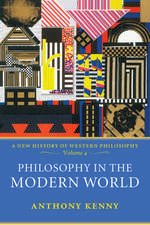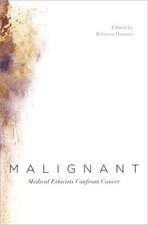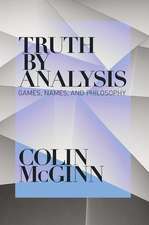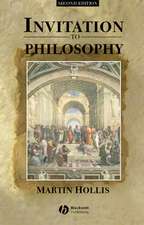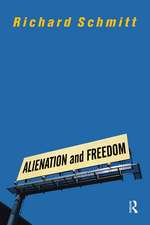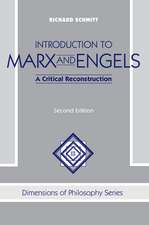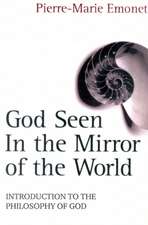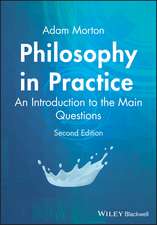Beginning Philosophy
Autor Richard Doubleen Limba Engleză Paperback – 24 feb 1999
Beginning Philosophy is designed for use in introductory philosophy courses at a wide range of institutions. It contains numerous pedagogical materials at the end of each chapter: sections called "misconceptions" list errors that introductory readers should avoid; guide questions prompt students to explain in their own words what the text is saying; review questions help students prepare for examinations; open-ended discussion questions call for independent judgment; and annotated bibliographies provide suggestions for further reading. The volume is further enhanced by a list of famous quotations from philosophers, a glossary of philosophical terms, a glossary of names of the most famous philosophers and scientists discussed in the text, and an extensive bibliography listing every work cited.
Preț: 774.46 lei
Preț vechi: 1060.90 lei
-27% Nou
Puncte Express: 1162
Preț estimativ în valută:
148.20€ • 155.24$ • 122.82£
148.20€ • 155.24$ • 122.82£
Carte tipărită la comandă
Livrare economică 09-23 aprilie
Preluare comenzi: 021 569.72.76
Specificații
ISBN-13: 9780195117813
ISBN-10: 0195117816
Pagini: 368
Ilustrații: 2 line drawings
Dimensiuni: 164 x 233 x 18 mm
Greutate: 0.54 kg
Editura: Oxford University Press
Colecția OUP USA
Locul publicării:New York, United States
ISBN-10: 0195117816
Pagini: 368
Ilustrații: 2 line drawings
Dimensiuni: 164 x 233 x 18 mm
Greutate: 0.54 kg
Editura: Oxford University Press
Colecția OUP USA
Locul publicării:New York, United States
Descriere
Beginning Philosophy offers students and general readers a uniquely straightforward yet challenging introduction to fundamental philosophical problems. Readily accessible to novices yet rich enough for more experienced readers, it combines serious investigation across a wide range of subjects in analytic philosophy with a clear, user-friendly writing style. Topics include logic and reasoning, the theory of knowledge, the nature of the external world, themind/body problem, normative ethics, metaethics, free will, the existence of God, and the problem of evil. A concluding chapter outlines the worldview developed in the text and connects that view to questions about the meaning of life. The interconnection of philosophical problems and the relationship ofphilosophy and science are emphasized throughout. The book includes both extensive quotes from historical figures such as Aquinas, Descartes, and Hume and references to philosophically minded nonphilosophers like Dostoevski, Stephen Jay Gould, and Carl Sagan. Beginning Philosophy is designed for use in introductory philosophy courses at a wide range of institutions. It contains numerous pedagogical materials at the end of each chapter: sections called "misconceptions" list errors that introductory readers should avoid; guide questions prompt students to explain in their own words what the text is saying; review questions help students prepare for examinations; open-ended discussion questions call for independent judgment; and annotatedbibliographies provide suggestions for further reading. The volume is further enhanced by a list of famous quotations from philosophers, a glossary of philosophical terms, a glossary of names of the most famous philosophers and scientists discussed in the text, and an extensive bibliography listing every workcited.
Recenzii
highly recommended. ... Richard Double's introduction is sufficient to provide teachers with material for a thorough grounding course in the subject.
highly recommended
highly recommended




